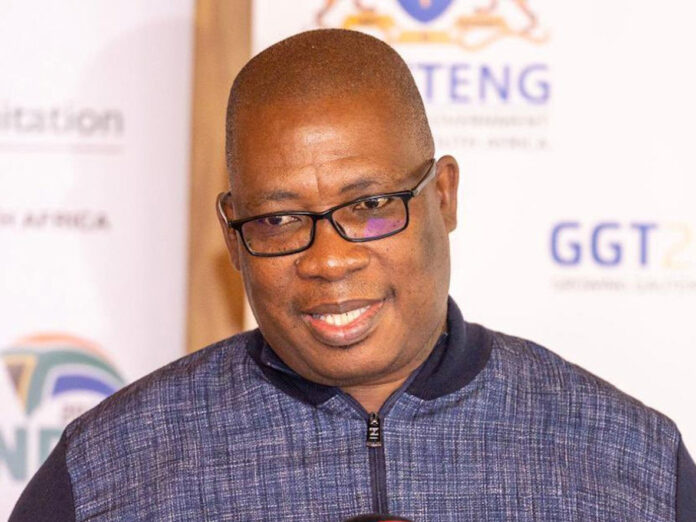Gauteng Premier Panyaza Lesufi has reaffirmed the provincial government’s commitment to professionalising and legally formalising the role of the Gauteng Traffic Wardens (GTWs), following months of public confusion and debate over their mandate and legitimacy.
Speaking during a media briefing on Wednesday, Lesufi detailed the province’s progress in repositioning the Traffic Wardens within Gauteng’s broader law enforcement framework.
He said the move is part of a long-term strategy to strengthen crime prevention and visible policing in the province.
“The introduction of the traffic wardens has been a crucial part of our fight against crime, especially in ensuring visible policing in our cities and communities. They have helped us in retrieving stolen vehicles, recovering ammunition, and combating the scourge of drugs in our neighbourhoods,” he said.
SA under siege from criminals
Lesufi explained that Gauteng, as South Africa’s economic engine, faces a severe and evolving security threat from sophisticated criminal networks operating in townships, informal settlements, and hostels. These conditions, he said, have contributed to the rise of vigilante groups and stretched law enforcement resources thin.
“We have a police-to-citizen ratio of 1 to 358, well below the United Nations (UN) standard.
“This shortage has made visible policing difficult and has created space for criminal syndicates to thrive. The Traffic Wardens were introduced to close that gap,” he added.
He further clarified that the GTWs are fully grounded in law and their appointment followed the legal processes outlined in the Constitution, the National Road Traffic Act (93 of 1996), and Section 334 of the Criminal Procedure Act, which designates certain officials as peace officers.
“Their powers are legitimate. They are peace officers with specific authority and were never meant to replace the SAPS. Instead, they support and complement the national police,” he added.
Over 8,800 wardens have already completed training in criminal law, ethics, evidence, and firearm use.
The province has since restructured their training pathway to allow for full integration as Gauteng Traffic Officers and members of the Special Law Enforcement Unit. Those who do not qualify will be redeployed to municipalities or other government agencies for by-law enforcement.
“No one will be left behind. We are committed to ensuring that all wardens are properly trained, qualified, and placed.”
Fight against drugs
Lesufi further announced that Gauteng will launch a province-wide Anti-Substance Abuse Campaign on October 27, 2025, aimed at addressing the root causes of crime through prevention and community partnerships.
“We are mobilising nurses, social workers, doctors, police, and communities. Substance abuse is destroying families, we must act together.”
The Premier concluded by highlighting a 7.9% overall drop in crime and a 25% reduction in road fatalities over the last quarter, attributing these gains to the province’s integrated approach.
“We have closed the debate on legitimacy. With this reconfiguration, Gauteng now has a professional, legally compliant, and community-centred force ready to keep our people safe,” said Lesufi.



